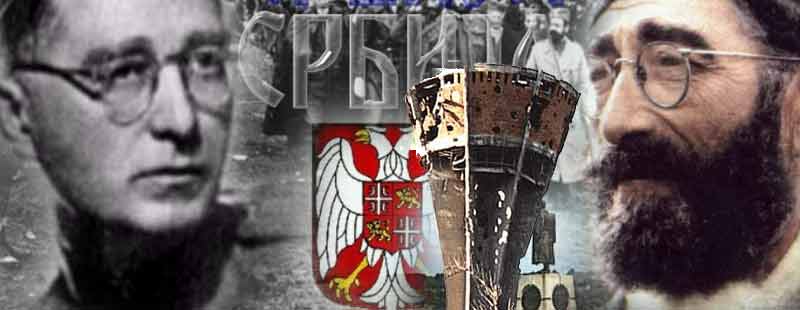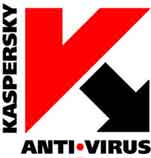German interests in the war against Yugoslavia
By Ulrich Rippert
Churchill once said that in war the truth is so precious it has to be surrounded with a bodyguard of lies. In Germany over the last two months one clearly saw the fabrication of such a bodyguard.
Even as air attacks proceeded against civilian targets—destroying factories, electricity works, refineries, bridges, streets, railway lines and apartment blocks— German government representatives spoke of a " humanitarian action " . Despite the fact that the NATO attacks unleashed the massive wave of refugees and reduced towns and villages in Kosovo to ruins , it has been maintained to the very end that the aim of the war was the defence of the refugees and their repatriation.
When, however, one explores the real interests and aims pursued by German business and politicians, it becomes evident that the propaganda about humanitarian aims serves to bury the truth . Behind closed doors an entirely different discussion is taking place.
It is focused on the changed world situation arising from the collapse of the Soviet Union in 1991. The dissolution of the USSR left a power vacuum which all of the great powers are seeking to fill. A race has begun amongst the transnational corporations to secure control over raw materials, labour and markets. These conflicts are assuming increasingly aggressive forms. Part of the conflict revolves around the huge energy resources in the Caspian region. It is believed that the world's largest reservoir of untapped oil and gas is to be found in the southern republics (Kazakhstan, Azerbaijan, Turkmenistan) of the former Soviet Union. Even though the reports over possible and confirmed reserves of mineral deposits differ wildly, the interest in the region is enormous.
The energy question is of great significance for Germany. Because of the concentration of industry in Germany, the demand for such minerals is enormous and must be met almost totally from imports. Already during the Wilhelminian empire there was enormous interest in the raw materials of the Caucasus. However German hopes of being able to cash in on the holdings of the declining Ottoman empire were shattered on the battlefields of the First World War. Hitler's own attempt to secure the oil wells in Baku collapsed in the face of the resistance of the Red Army. The urgency on the part of Germany and Europe to acquire access to these energy resources is made clear in a study which was put before the Social Democratic Party (SPD) parliamentary fraction last June. It bears the title "The Region of the Future: The Caspian Sea—German Interests and European Politics in the Trans-Caucasian and Central Asian Republics." The paper emphasises that if energy demands remain constant, supplies of North Sea oil will hold out for between 10 (Great Britain) and 14 years (Norway)."Using current rates, in 2010 10 percent of Europe's total demand for natural gas will remain unmet. In 2020 that rate is expected to reach 30 percent."
The bombing of Serbia and the military occupation of Kosovo by NATO must be seen in this light. For the first time since the end of the Cold War, American interests as the leading NATO power are colliding with the interests of Russia and China. The first intervention of the alliance "out of area"—in Bosnia Herzegovina—was carried out with Russian agreement. Moscow was included in NATO activities and participated in the planning and carrying out of the operation. It was quite different in Kosovo. In order to head off an anticipated veto on the part of Russia and China, NATO simply ignored the United Nations.
As a result, German politics is now in a state of high tension. On the one hand, since the foundation of NATO, Germany has been closely tied to the Alliance and its economic and political development have been heavily dependent on the United States for the past 50 years. Based on this tradition Chancellor Schroeder stated on a number of occasions in the course of the war: "For reasons of state it is necessary to be loyal to the Alliance". On the other hand, Germany's traditional orientation towards the East has increased in significance. Even under the conditions of the Cold War, Germany's economic and political collaboration with Moscow was never completely severed. Since the end of the 60s the same Deutsche Bank which financed Hitler's campaign for " Lebensraum" in the East has been pushing ahead with the new Eastern policy introduced by the government of Willy Brandt. In his book Paths to Russia , Wilhelm Cristians, chairman of the executive committee of Deutsche Bank until 1988, describes how as a young Wehrmacht lieutenant he was wounded on the Eastern front. Two decades later he was personally responsible for setting up an office in Moscow for Germany's biggest bank and initiated large-scale economic projects such as the delivery of pipes from the Mannesmann concern for Soviet pipelines.
Immediately after German reunification in 1990 the government made unmistakably clear that it looked upon Eastern Europe as its own backyard for economic and political influence. The recognition of Slovenia and Croatia in 1991 in the face of many warnings made clear Germany's claim to leadership in this region. Since then the German government has followed the intensified interventions of the American government in this area with mixed feelings. Above all, the German government is seeking to prevent or limit a confrontation with Russia.
In the course of the war Defence Minister Rudolf Scharping (SPD) resorted to theatrics to describe the "unimaginable cruelty of the Serbs", so as to boost the war propaganda. Meanwhile in the Defence Ministry itself, intense discussions took place over a period of months on how to rebuff the aggressiveness of the Americans and prevent an escalation of the confrontation with Russia. A study by a German military political advisor is revealing in this respect. Nearly a year before the NATO attack on Serbia, August Pradetto, professor at the German Military Academy in Hamburg, published a lengthy contribution on the theme "Management of Conflict through Military Intervention? The Dilemma of Western Policy". In the paper he criticises the Kosovo policy of NATO and warns against a military intervention. Under the title "Aspects of the Political Power Struggle in the Kosovo Conflict between Russia and the USA" he emphasises that the intervention by NATO in the Balkans has not simply "humanitarian, political, international legal and military aspects", but is based above all on "strategic, power-political" considerations. "The issue at stake is the conflict over the competence and extent of political decision-making, as well as the military sway, of the Western Alliance. Following the collapse of the Warsaw Pact and the Soviet Union diverse power resources in Europe and beyond have been newly re-divided."
The various conflicts bound up with this turn of events are patently visible. Together with the issue of the extension of NATO towards the East, Pradetto expressly identifies "influence over the oil reserves in the region around the Caspian Sea, which is at the moment under the immediate control of Moscow".
He shows that Russia's own fears are fully justified. NATO has established intensive collaboration with Albania and Macedonia and set up "communication offices" in both countries. The Alliance also uses their military installations and carries out joint manoeuvres in both countries. At the same time Russian anxieties have grown that NATO, under the guise of restraining the conflict in Kosovo, is increasing its influence in South East Europe and thereby establishing new options and strategic positions against Russia.
" The intervention of NATO military forces in Kosovo, without the sanction of the UN Security Council and founded on a mandate which NATO awarded itself on the basis of its own definition of an insecure situation requiring military measures, is regarded as a precedent for possible future interventions in the immediate vicinity of Russia, such as the Caucasus, using ethnic conflicts and disputes between countries. This under conditions where a vigorous struggle has emerged between Western and Russian oil concerns and between the strategic interests of Washington and Moscow over the exploitation of oil resources in the Caspian region." As already noted, Pradetto wrote this article nearly a year before the NATO air attacks began, providing an exposure, prior to the fact, of the official war propaganda. Since then substantial conflicts have taken place behind the scenes. While the US government drove ahead with preparations for the war, a number of European governments, including the Germans, were keen to find a diplomatic solution. Following the American success in forcing through its position, the German government participated in the bombing of Serbia and is now taking part in the occupation of Kosovo with its own troops. Alongside " loyalty to the alliance " the conviction is growing that the economic interests of a unified Germany can only be advanced through the vigorous creation of its own military force.












